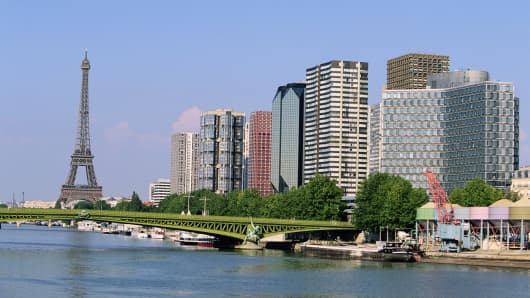France's jobless rate rose further in the last three months of 2012 to its highest since the second quarter of 1999, showing the challenge the government faces as it seeks to make good on a goal to reverse the upward trend by the end of the year.
The rise in unemployment to 10.6 percent is the sixth consecutive quarter of increase in the jobless rate in the euro zone's second largest economy, which contracted 0.3 percent in the final three months of 2012.
Economists polled by Reuters forecast an even bleaker picture in the months to come, with unemployment seen hitting an all-time high of 11.3 percent by the start of 2014.
The headline figure, based on the measurement criteria of the International Labour Organisation (ILO), was up 0.3 percentage points from the third quarter. It includes unemployment in mainland France and overseas territories.
The unemployment for mainland France alone was 10.2 percent.
(Read More: 'Tide Turning' Against France, Say Economists)
The total number of unemployed in mainland France stood at 2.9 million in the fourth quarter, the data published by national statistics office INSEE showed.
Young people were hit the hardest, with just over a quarter of 15-24 year-olds unemployed.
According to monthly figures issued last week by the Labour Ministry, which are not calculated according to ILO measures, mainland jobless totalled 3.17 million in January, the highest since July 1997 and close to the all-time high of 3.196 million.
Hollande took power last year on the promise of reversing the upward trend in unemployment by the end of 2013.
However, after already backtracking on his growth and deficit targets for 2013, he conceded last month that weak growth would make his unemployment target more difficult than previously thought.
The Socialists have already taken steps to tackle the problem, with a so-called competitiveness pact last year aimed at easing labor costs, and a deal with mainstream unions in January to make the labor market more flexible.
However, hard-left unions remain firmly opposed to the agreement which they say threatens job security, and came out in protests on Tuesday branding the deal "criminal'.


